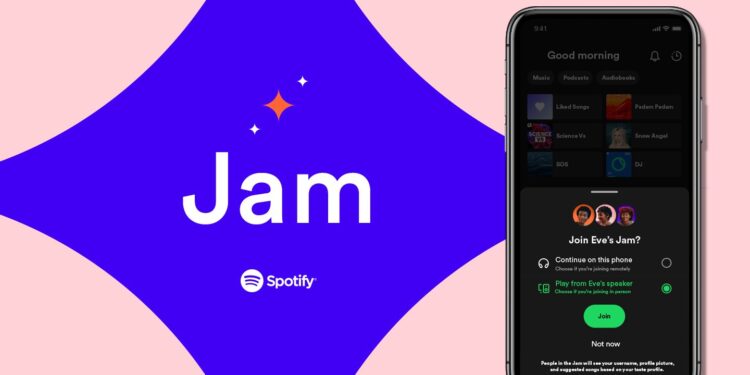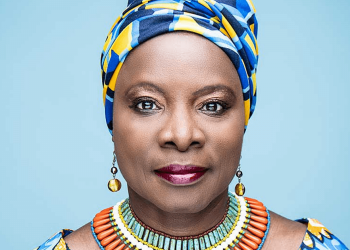ABUJA, NIGERIA | NOW THEN DIGITAL — This week, Spotify, the Swedish audio streaming, and media services platform, introduced its latest feature, Jam, to users worldwide, enhancing its array of social features that have garnered significant popularity. Collaborative Playlists and Blend are among the existing features, with over 45 million Blend playlists created and users spending more than 200 million hours listening to Collaborative Playlists in the past month.
Jam takes social listening to a personalized, real-time level, catering to groups of friends, regardless of their geographic locations. Premium subscribers have the ability to initiate a Jam session, inviting others to join, even if they have Free accounts. The aim is to create a curated playlist based on common musical interests among participants.
To start a Jam, users can choose a playlist or song and click the “Start a Jam” button, accessible through the speaker icon or playlist options. The host can select the playback device, and invitations are sent to those on the same Wi-Fi network when they open Spotify.
Invitations can be sent in three ways: tapping phones with Bluetooth enabled, scanning a displayed QR code, or sharing a link through various platforms. During a Jam, participants can add songs to the queue, view contributors for each track, and receive music recommendations on their individual devices. The host maintains control over participants, the track order, and has the ability to remove songs to maintain the desired vibe.
In another stride towards innovation, Spotify has ventured into the realm of artificial intelligence (AI) with Voice Translation for podcasts. This new feature maintains the podcaster’s original voice style while translating episodes into different languages, broadening accessibility for global audiences.
Recent Spotify data from Nigeria sheds light on the burgeoning influence of Generation Z on podcast listenership. In the last 90 days, individuals aged 18 to 24 constituted 50% of total streams, followed by those aged 25 to 29 at 21%.
Nigeria has witnessed a remarkable surge in podcast consumption, experiencing a 222% growth between 2021 and 2022, positioning it as the second-largest podcast market in Africa, following South Africa.

















